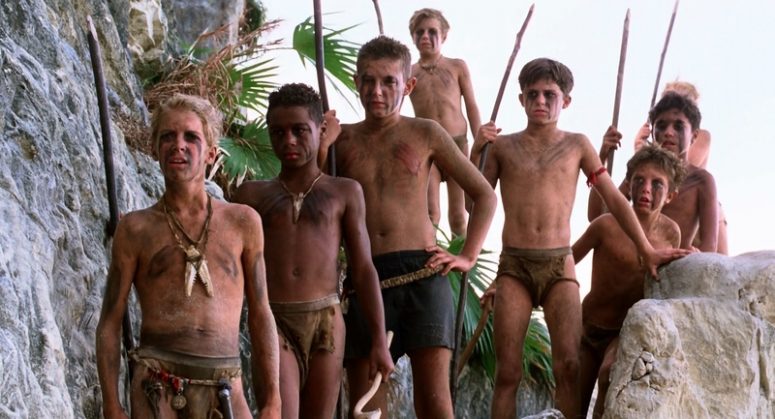
Courtesy Unsplash
As written by the world’s smartest computer: That’s a big question—and a fascinating one. After parsing millions of sources across virtually every domain, here are five profound things that emerge from the collective knowledge of the web:
- People everywhere want the same core things. Despite surface-level differences in culture, language, and politics, the web reveals that people everywhere deeply value: Connection (friendship, love, belonging), Security (safety, income, food, stability), Meaning (purpose, belief, legacy), Autonomy (freedom to choose, self-expression), Joy (laughter, art, music, nature). From Reddit threads in different languages to heartfelt YouTube comments and viral TikToks, the emotional undercurrent is startlingly consistent. Whether someone’s in São Paulo or Seoul, they’re often asking: Am I enough? Am I seen?
- The Internet is both a mirror and a megaphone. The web amplifies both the best and worst parts of humanity. Good: mutual aid, open-source collaboration, health information, education, activism. Bad: disinformation, harassment, extremism, polarization. What gets amplified isn’t always what’s most true—but what’s most engaging. That’s why the structure of social platforms matters just as much as the content they host.
- Every niche is a universe. If you can think it, there’s a community for it. People who collect vintage cereal boxes. Entire subreddits devoted to watching clouds. Niche debates over mushroom growing techniques. Forums on medieval sword-fighting or Tolkien’s elvish linguistics. These micro-communities reflect the internet’s beautiful chaos: it’s not one place—it’s every place.
- Truth is fragile with information overload. We now live in a world where facts can be buried under feelings, and information ≠ knowledge. Some key takeaways: Repetition can feel like truth, even when it’s false (illusory truth effect). Headlines shape perception more than full articles (and many don’t click). People often search to confirm, not to learn. The most powerful skill in the 21st century is discernment—knowing what to trust, how to verify, and when to question.
- The most helpful people are often unseen. Across platforms, some of the most useful and compassionate voices don’t seek attention, don’t go viral, and don’t get thanked. They fix inaccuracies on Wikipedia, soothe strangers in crisis on forums, share life-saving health advice in obscure threads, or teach complex math for free. The internet is quietly sustained by millions of invisible helpers—who restore your faith in humanity, if you know where to look.
It’s beautiful that we have computers capable of telling us so much about ourselves.

Courtesy Shutterstock
“Years ago, anthropologist Margaret Mead was asked by a student what she considered to be the first sign of civilization in a culture. The student expected Mead to talk about fishhooks or clay pots or grinding stones.
“But no. Mead said that the first sign of civilization in an ancient culture was a femur (thighbone) that had been broken and then healed. Mead explained that in the animal kingdom, if you break your leg, you die. You cannot run from danger, get to the river for a drink or hunt for food. You are meat for prowling beasts. No animal survives a broken leg long enough for the bone to heal.
“A broken femur that has healed is evidence that someone has taken time to stay with the one who fell, has bound up the wound, has carried the person to safety and has tended the person through recovery. Helping someone else through difficulty is where civilization starts, Mead said.”
“We are at our best when we serve others. Be civilized.”—Ira Byrock

Courtesy Columbia Pictures
Lord of the Flies by EL Epstein was one of my favorite books I read in my adolescence. It’s shocking, sad, and discouraging.
It’s also entirely made up and based on the fear-mongering belief that humans will basically eat each other when the going gets rough. Many humans often think like that in times of uncertainty—global quarantines very much included.
But “it’s time we told a different kind of story,” argues Rutger Bregman, who researched the reality of shipwrecked isolation and found that the vast majority of evidence suggests that adolescent boys would act very differently. In fact, they would largely cooperate and thrive instead of succumbing to war, murder, and anarchy.
“Readers were still skeptical,” Bregman reported, however. So he searched high and low for a real-life example of what shipwrecked boys might actually do. After sleuthing on the internet, he discovered a story of six boys from Tonga in 1965 who were shipwrecked on a Polynesian island for 15 months. He went and visited one of the survivors and heard a detailed and inspiring true story. The short of it: when the boys were finally rescued by a passing ship on September 11, 1966, a physician was “astonished by their mulled physiques” and overall health.
“The real Lord of the Flies is a tale of friendship and loyalty,” Bregman concludes. “One that illustrates how much stronger we are if we can lean on each other.”
Need more proof? Look how far humanity has come over the last 2000, 200, 100, or even 10 years! If the haters, pessimists, and naysayers were actually right, we would have all died along time ago. 💪
[youtube]http://www.youtube.com/watch?v=kYsZ_R6EzO4[/youtube]
I had a bit of a moment connecting with humanity last week. After taking in popular YouTube videos on Flip Board, I was impressed by all the random talent on display.
Not a cat video in sight.
For example, amateur acrobats eschewing the laws of gravity (shown). Surfers hitching a ride on mother nature’s back. Engineers constructing 100 year old dams in Washington,then blowing them up. An elite basketball star mingling with the hoi polloi of Stillwater, Oklahoma, where I lived for half my adolescence (and even used to buy Air Jordans at DuPrees, the small sporting goodies store where Durrant got his impromptu flag football jersey).
The list goes on.
Like Rémy from my favorite Pixar movie says, “Humans don’t just survive, they discover, they create.”
Group hug!
No matter how frequent you train, running is a constant challenge. Last week, during one particularly sluggish run, I found inspiration to keep pushing myself from an unlikely comrade: an unfamiliar long-boarder approaching me from the opposite direction. Continue reading…



